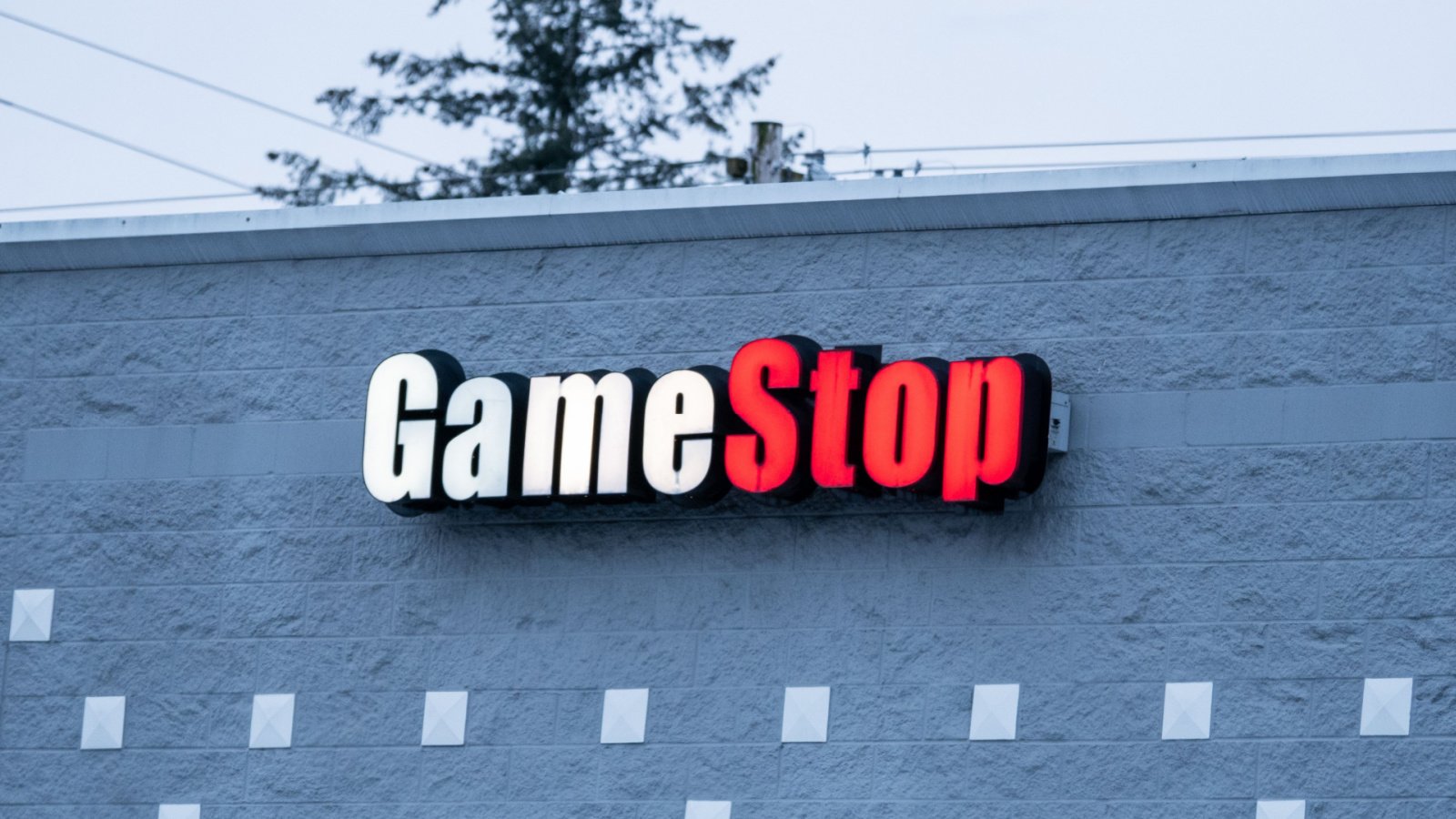Late last month, and early into this month, GameStop (NYSE:GME) stock experienced what could be called a pre-earnings rally, but in hindsight may have been little more than a “dead cat bounce.” However, this latest run-up for the “meme stock” legend has ended almost as quickly as it started. Shares began to pull back on the eve of the company’s quarterly earnings release.
While holding steady on earnings day itself, following the release of results after the market close, GME is in sell-off mode once again. The stock could soon cough back these recent gains. It’s not a shock that sentiment for the retail investor favorite is whipsawing back to bearish, after a brief wave of bullishness. Even if, on the surface, some of the latest news sounds positive on the surface.
GME Stock, Earnings, the Market’s Lack of ‘Diamond Hands’
Remember, during the peak of “meme stock mania,” when devoted fans of GameStop, AMC Entertainment (NYSE:AMC) and other popular meme plays vowed to maintain positions with “diamond hands,” refusing to sell under any conditions?
Well, it’s safe to say this mentality has long since entered the history books. At least, that’s a key takeaway here, with the market’s overall reaction to the latest GME stock earnings release. Don’t get me wrong, I don’t fault this stock’s fair-weather friends from hightailing it following this earnings release.
GameStop’s results for the fiscal quarter ending Oct. 28, 2023 (released post-market on Dec. 6) were not exactly stunning. Yes, the company reported an earnings beat. Earnings per share of zero came ahead of estimates, which forecasted negative EPS of eight cents per share. However, the company’s quarterly revenue ($1.08 billion) missed forecasts by $100 million.
Thanks to cost reduction measures, net losses narrowed year-over-year, despite falling revenue. However, investors know full well that cutting costs will only go far to improve the situation with GameStop.
The same goes with another strategic move the company may be pursuing. That would be the transformation of GameStop into an investment vehicle.
The Next Berkshire? More Like the Next Sears Holdings
GameStop did not hold an earnings conference call, but alongside earnings, it did make another announcement that, again, sounds better on the surface than it does when you dive into the details.
As Seeking Alpha reported on earnings day, GameStop’s board approved investment policy changes that may enable CEO Ryan Cohen to both invest the company’s war chest of cash into other equities, including equities that Cohen has also invested in directly/through other vehicles.
While not for certain, this move could enable Cohen to turn GameStop into a vehicle similar to that of Warren Buffett’s Berkshire Hathaway (NYSE:BRK.A,NYSE:BRK.B), or Carl Icahn’s Icahn Enterprises (NASDAQ:IEP).
Cohen in the past has made remarks that suggest both investing legends are sources of inspiration. Yet while Cohen may dream of building the next BRK or IEP, GME stock appears more likely to end up being the next Sears Holdings.
In the 2000s, activist investor Eddie Lampert was initially successful in merging retailers Sears and Kmart, wringing out significant cost savings. However, instead of becoming the next Berkshire, as some opined was possible, underinvestment and a changing retail environment eventually led to its bankruptcy.
Follow The Market’s Lead: Sell
GameStop isn’t doomed to go the Chapter 11 route, but much like Sears with the rise of e-commerce, the continued move away from selling video games in physical form will likely result in further sales declines, to a point where cutting costs to the bone will no longer cut it.
GameStop at that point will need to accelerate the pace of its store closures, much like Sears did prior to its bankruptcy. The issue for investors, however, is that the proceeds from winding down operations will probably be far below the GME’s current stock price.
Shares trade for $13.70 per share, but GameStop’s tangible book value is only $4.16 per share. Barring Ryan Cohen generating high returns from investing the company’s cash into other equities, a continued slide in price is likely. With this, follow the market’s lead, and sell GME if you own it.
On the date of publication, Thomas Niel did not hold (either directly or indirectly) any positions in the securities mentioned in this article. The opinions expressed in this article are those of the writer, subject to the InvestorPlace.com Publishing Guidelines.
